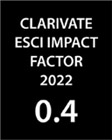State and production of space: „new” approaches in spatial sciences - Editorial
DOI:
https://doi.org/10.17649/TET.33.4.3214Keywords:
Henri Lefebvre, production of space, social space, state conceptsAbstract
Henri Lefebvre’s critical theory of space and relational thinking about state and space has been slowly making itself felt in academic thought in Hungary since the late 1980s, but has only been widely discussed and recognised as an interpretative-analytical framework for spatial research in the last ten years. By bringing together critical scholars for this special issue, we wanted to contribute to this unfolding academic discourse on the production of space. We also intended to reflect on the state as a social entity that is inherently spatial. Therefore, the contributions collected in this issue share a common focus on certain elements, such as the spatial organisation and practice of the state as well as the assumption that space is socially produced. In this editorial we emphasize some powerful ideas in Lefebvre’s theory of social space and the related international debates which inform the authors, such as the mutually constitutive nature of space and society, the manifestation and reproduction of social relations (and thus, the conditions of the actual mode of production) in, and created through, spatial processes, the conceptualisation of the fluidity of social processes in the dialectics of perceived, conceived and lived space, as well as the spatial nature of social justice. In line with this train of thought, we expound some of Lefebvre’s ideas about the state which inspired the debates and critical interpretations of the spatiality of power, its changing technologies, related social practices, and the variegated nature of state spaces in the current system of capitalism. These ideas shaped domestic academic discourse, emerging critical studies and theoretical reflections on the state as an agent and as the structural condition for the production of space in a Hungarian (European, semi-peripheral and transitory) context. By discussing the predominant themes, spatial and scalar foci and approaches in Hungarian spatial research against the backdrop of „ real-world ” structural processes and the academic environment described above, we also emphasize the role of spatial studies in deepening our knowledge and in critically depicting state roles in transition, peripherality, European integration and (re-)production of inequalities. Finally, we give an overview of the ideas and key arguments that connect the papers collected in this issue with the core concept of state space in Lefebvre.
Downloads
Published
How to Cite
Issue
Section
License
Copyright (c) 2019 Judit Timár, Erika Nagy

This work is licensed under a Creative Commons Attribution 4.0 International License.
Authors wishing to publish in the journal accept the terms and conditions detailed in the LICENSING TERMS.






